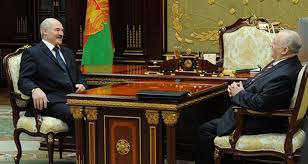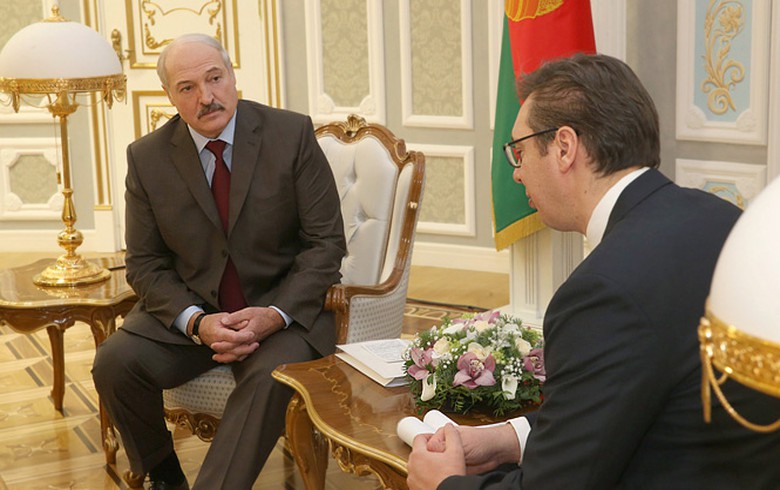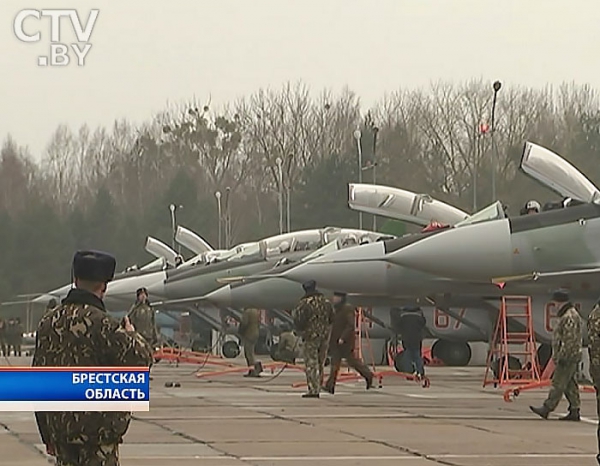Social parasites’ protests, high-tech park – digest of Belarus analytics

Social parasites' protest in Minsk. Photo: naviny.by
Aliena Arciomienka, BISS, analyses the impact of the crisis on the potential of street protest in Belarus. Thomas De Waal, Carnegie Europe, suggests Lukashenka’s balancing act is made easier by the confusion coming from the White House as to what constitutes current U.S. foreign policy.
High basic civic knowledge, low trust in influencing government – Pact presents key results of the Civic Literacy Test survey in Belarus. Aliaksandr Klaskoŭski reflects on a meeting between Lukashenka and chief editor of Narodnaja Volia independent newspaper.
The new papers added to Belaruspolicy.com database include a study of the Belarusian High Technology Park, joint stock companies, and the 8th issue of the Macroeconomic Review of Belarus.
This and more in the new edition of digest of Belarus analytics.
Social protests in Belarus
New Quality of Protest. Why Belarusians Began to Take Streets – Artiom Shraibman, for the Carnegie Moscow Center, writes about the protests against the “social parasite tax.” People were brought to the streets due to a mixture of two emotions – they feel that they have nothing to lose and nothing to fear. This is a new quality of protest for Belarus when the passive majority is sympathetic not to the president but the protesters.
What Do the Protests in Belarus Mean? – Yauheni Preiherman, for the Jamestown Foundation, analyzes a series of protests in Minsk and regional cities in recent weeks that made headlines both inside Belarus and abroad. The fact that they gathered the largest number of protesters in almost seven years sparked active discussions as to whether the protests can become a game-changer for Belarusian domestic politics and the country’s role in regional affairs.
Impact Of the Crisis On Protest Potential of Unemployed – Aliena Arciomienka, BISS, analyzing the recent protests against the decree №3, draws attention to the polls on the Belarusians' attitude to reforms. From 2014 to 2015, the number of unemployed Belarusian ready to participate in rallies raised from 4% to 23%. Such protest potential is growing not constrained by any fear of job loss or deterioration of labour conditions or the lack of support from the state.
Why Belarusian Business Supports Social Projects – Aliaksandr Skraboŭski, head of the National contest Social Weekend, explains who and why social projects. One of the answers is that Belarusian business wants to reflect the degree of their maturity, their owners, employees, and thank the environment for the opportunity to run the business. Soon such intangible assets will remain almost the only competitive advantage on the market.

Will Lukashenka follow Jaruzelski’s steps? – Aliaksandr Klaskoŭski follows up on a recent meeting between Lukashenka and Iosif Siaredzič, chief editor of Narodnaja Volia independent newspaper. The author concludes that the crisis in Belarus is not as acute as it was in Poland in late 1980s to make Belarusian leadership hurry up with the national dialogue, while Belarusian opposition and civil society should get out of the political ghetto to make the roundtable meaningful.
Foreign Policy and Security
A Belarusian Balancing Act – Thomas De Waal, Carnegie Europe, notes that unprecedented series of street protests in several towns over the weekend of February 18–19, inspired by socioeconomic grievances, suggests that Alexander Lukashenka knows his regime needs to keep adapting if it is not to crumble. Lukashenka tries to keep his options open with the EU while not allowing Russia to take him for granted.
Situation In the Field of National Security and Defense of Belarus. January 2017 – According to Belarus Security Blog monthly monitoring, a new reality in the field of border security Belarus is the fact that starting from August 2016 Russia de facto withdrew from the regime of freedom of movement across the border with Belarus. The depth of the contradictions between the two countries makes real the prospect of a full-fledged return of border controls on the Belarusian-Russian border.
Civic Literacy Test in Belarus: High Basic Knowledge, Low Trust in Influencing Government – According to the Civic Literacy Test, the first national survey of the kind in Belarus, 75% of Belarusians have high knowledge of basic civil rights and responsibilities; at the same time, 99% believe they cannot influence state policies and decisions. The national survey was conducted by SATIO and commissioned by Pact in June 2016. The presentation will take place on March 15 in Minsk.
P.S. Zhadan. Catching poet-"terrorist" – Maksim Žbankoŭ, Belarusian Journal, reflects on a case of the detention in Minsk, the deportation decision and its cancellation of the famous Ukrainian writer Serhiy Zhadan. The analyst sees a clear message in that – the authorities have no logic, only emotions and instincts. One more conclusion is that a person in Belarus is totally unprotected before the authorities.
Business envoronment and economy
Work of the High Technology Park: a threefold increase in exports of IT services and what would happen if the park is closed The creation of the park led to a threefold increase in exports of IT services in Belarus during 2006-2013. Read more
Work of the High Technology Park: a threefold increase in exports of IT services and what would happen if the park is closed. The results of statistical modeling that involves the method of synthetic monitoring for assessing the impact of High Technology Park on the growth of IT sector show that the creation of the park led to a threefold increase in exports of IT services in Belarus during 2006-2013. However, top managers of Belarusian companies are afraid of changes in the Park's legal environments and predict migration of IT companies in other countries, spread of semi-legal schemes of work and an overall reduction in the rates of IT sector development.
The anatomy of Belarusian joint stock companies. Little is known about how effective the Belarusian enterprises are, what share of the economy belongs to the state, how state-owned enterprises differ from private ones, how labour, capital and materials are distributed between the companies, and how emergence, evolution and exit of enterprises from the market impacts the economy. This work is an attempt to find answers to these questions by analysing the activities of the Belarusian joint stock companies.
8th issue of the Macroeconomic Review of Belarus (IV quarter 2016). Quarterly issues of the Macroeconomic Review of Belarus represent the unique panorama in over 100 graphs and tables of the key economic indicators covering all sectors of Belarusian economy: real sector, fiscal sector, monetary sector, and external sector. There are less words, more data. Macroeconomic Review can be helpful for a wide range of local and external stakeholders interested in Belarus economy in general: from academia and public authorities to representatives of international organisations.
Belarus Digest prepared this overview on the basis of materials provided by Pact. This digest attempts to give a richer picture of the recent political and civil society events in Belarus. It often goes beyond the hot stories already available in English-language media.



 The most likely scheme is trilateral and involves Serbia. Last year, Russia promised Serbia's Russia-friendly government six MiG-29 second-hand fighter jets and some Buk surface-to-air missile (SAM) systems. The Buk deal failed, and anyway the six airplanes from Russia would not have sufficed for Serbia to rebuild its air force, which it lost in 1999. But then, on 27 January, after returning from Minsk, Serbian Defence minister Zoran Đorđević told the Serbian daily
The most likely scheme is trilateral and involves Serbia. Last year, Russia promised Serbia's Russia-friendly government six MiG-29 second-hand fighter jets and some Buk surface-to-air missile (SAM) systems. The Buk deal failed, and anyway the six airplanes from Russia would not have sufficed for Serbia to rebuild its air force, which it lost in 1999. But then, on 27 January, after returning from Minsk, Serbian Defence minister Zoran Đorđević told the Serbian daily  Belarus depends on Russia disproportionately for procuring military equipment, as it lacks money to buy from alternative sources. Russia critically depends on Belarus strategically. It needs Belarus because the latter is located in the vicinity of Russia's core region around Moscow and contributes to its security. Moreover, Belarus, as one of Moscow's few allies, helps the Kremlin keep the remnants of its imperial prestige by participating in demonstrative shows of Russian strength, despite
Belarus depends on Russia disproportionately for procuring military equipment, as it lacks money to buy from alternative sources. Russia critically depends on Belarus strategically. It needs Belarus because the latter is located in the vicinity of Russia's core region around Moscow and contributes to its security. Moreover, Belarus, as one of Moscow's few allies, helps the Kremlin keep the remnants of its imperial prestige by participating in demonstrative shows of Russian strength, despite 
